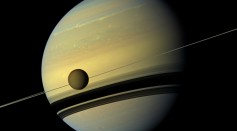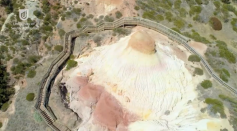sediments

Titan's Landscape: Saturn's Largest Moon Similar to Earth, Here's Why
Earth's First Continents Emerged From Ocean 700 Million Years Earlier Than Previously Thought

Explore Hallett Cove in Australia, Thanks to Virtual Reality

Tiny Polynesian Islands May Not Be Threatened by Climate Change After All: New Study Gives Better Perspective
Reef Oasis Found in Depths of Murky Iraqi Waters
Blue Hole of Belize—The Fall of Maya Civilization Found in the Sand
A Magnetic Topsy Turvy Earth—When North Becomes South
Most Popular

How Technology Is Changing the Real Estate Industry?

How a Plant-Based Diet Can Protect Against Breast Cancer: Insights from Nutrition Research

Study Reveals High Turnover in Scientific Research Careers: What This Means for Future Scientists

Why It's So Difficult to Lose Weight: The Biological Explanation Behind Obesity





